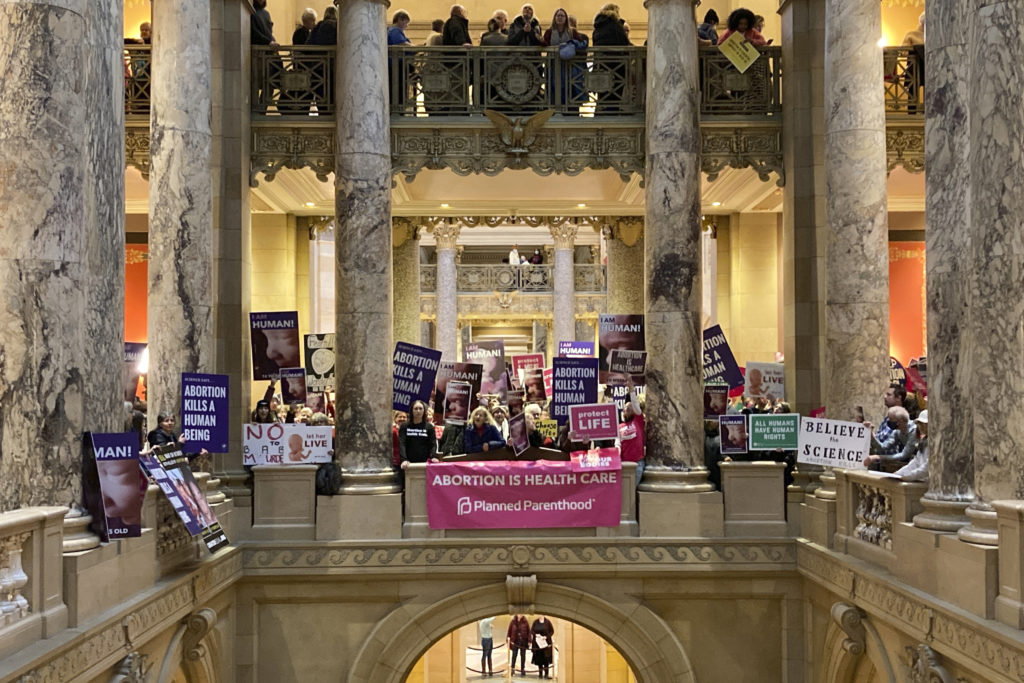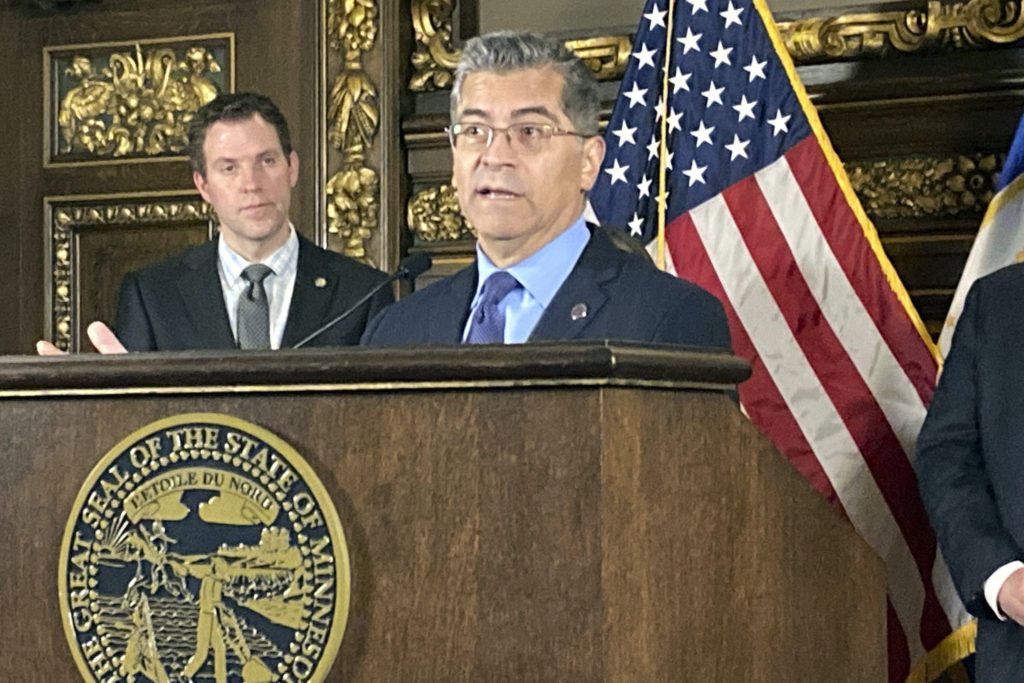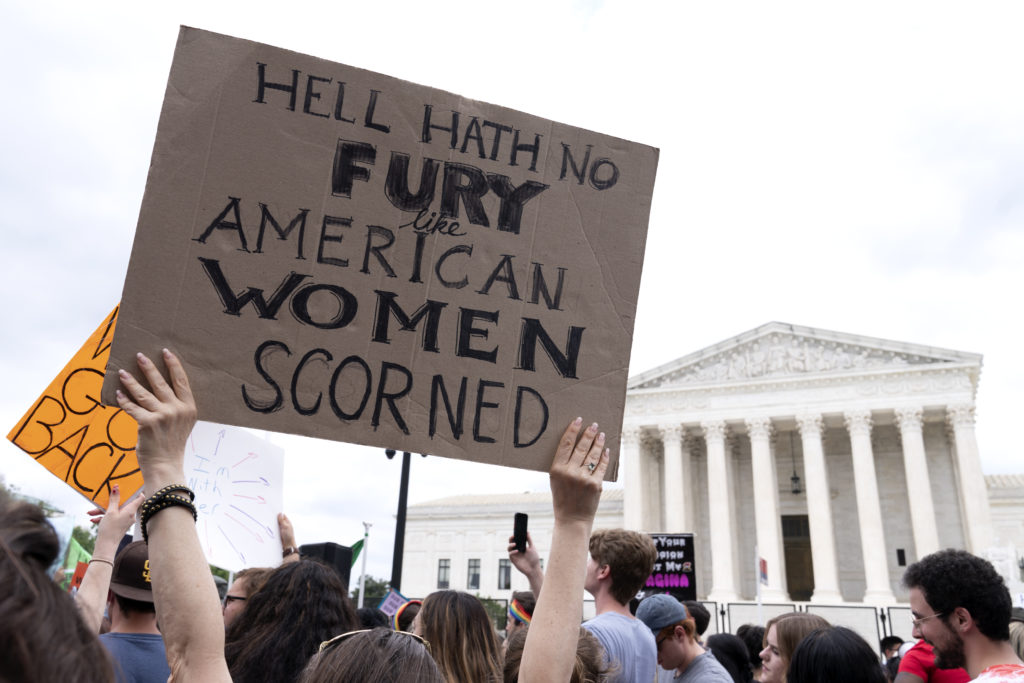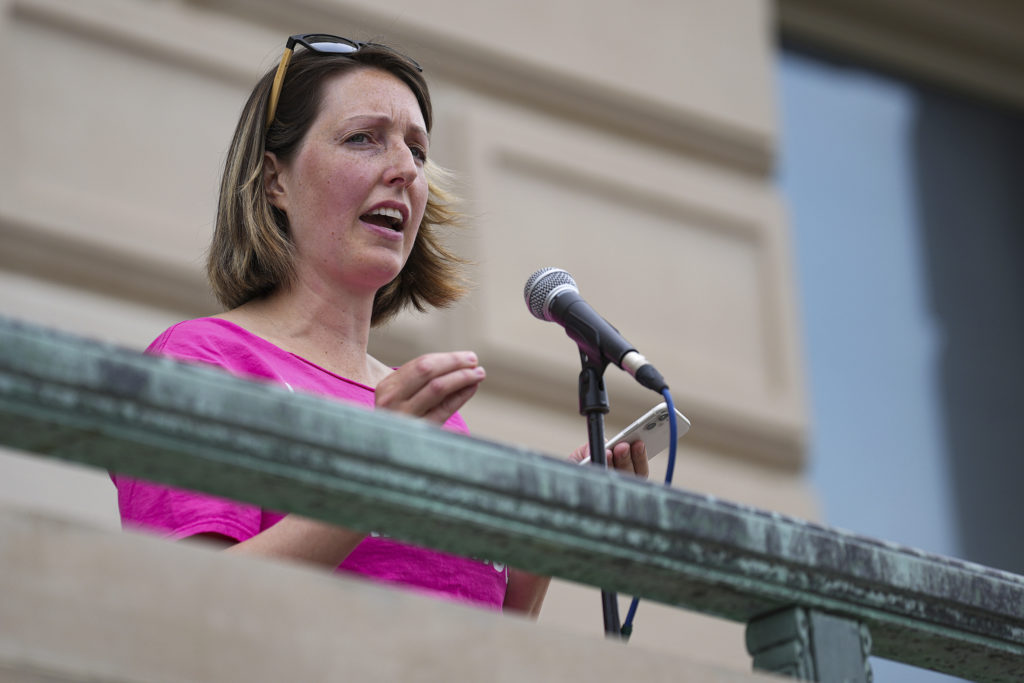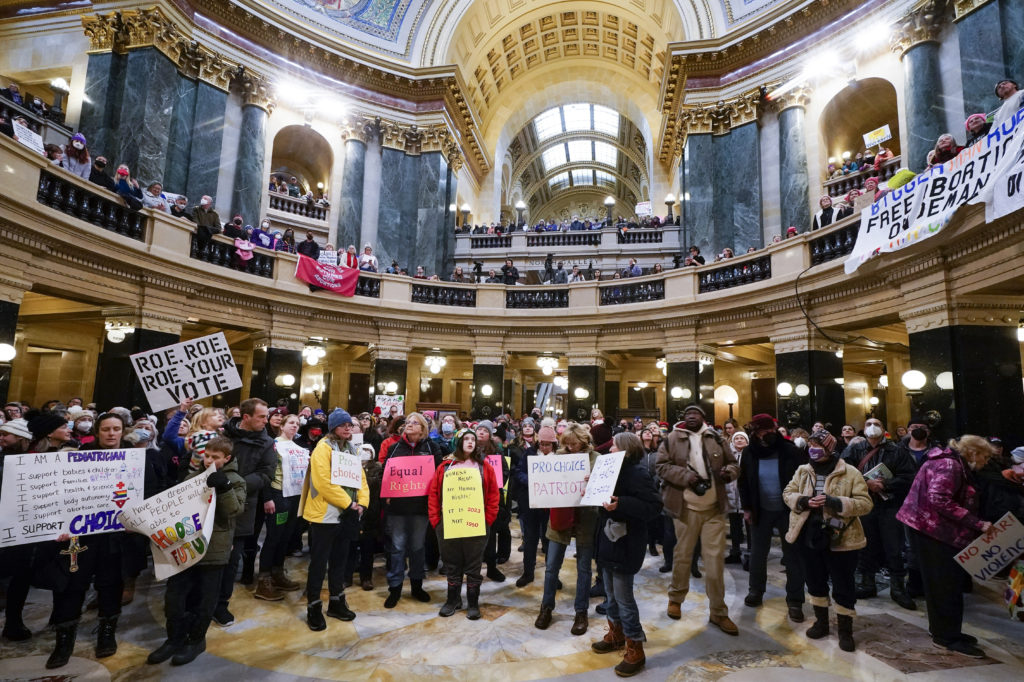
By SCOTT BAUER
Associated Press
MADISON, Wis. (AP) — National groups on both sides of the abortion fight on Wednesday pledged significant spending in the race for a pivotal seat on the Wisconsin Supreme Court, tossing the perennial battleground state into the spotlight of the searing debate over abortion access.
The winner of the April 4 general election will determine majority control of the court, which is expected to rule on cases affecting abortion, gerrymandered legislative districts and voting rights heading into the 2024 presidential election. The court, with a 4-3 conservative tilt, came within one vote of overturning President Joe Biden’s win in the state in 2020, and both major parties are preparing for another close margin in next year’s presidential contest.
Milwaukee County Circuit Judge Janet Protasiewicz, who campaigned as an abortion rights supporter and received the most votes in Tuesday’s primary, wasted no time attacking her Republican-backed opponent, Dan Kelly. Both are seeking to replace a retiring conservative justice.
Protasiewicz launched a pair of new television ads Wednesday, including one labeling Kelly an “extremist” because of his position on abortion. Kelly is endorsed by the state’s three largest anti-abortion groups, while Protasiewicz is endorsed by EMILY’s List, which works nationwide to elect Democratic abortion rights supporters.
State and national Planned Parenthood political groups say they expect to spend in the seven figures, but would say only that their total would be more than $1 million to support Protasiewicz.
Their strategy will include radio, TV and online advertising, plus direct mail. Planned Parenthood Advocates of Wisconsin has hired staff across the state to support door-to-door and other campaign efforts.
Susan B. Anthony Pro-Life America, one of the most influential groups in the anti-abortion movement, said it had committed “six figures” to helping elect Kelly during the primary campaign through mailers, phone calls and text messages. The group said in a statement that it plans to continue supporting Kelly during the general election through its Women Speak Out campaign organization.
Protasiewicz told supporters at her victory party that if Kelly wins, he will vote to uphold Wisconsin’s 1849 law banning abortions, a claim repeated in her new ad. The law, enacted a year after Wisconsin became a state, went back into effect after the U.S. Supreme Court overturned Roe v. Wade last year. A Democratic-backed lawsuit seeking to overturn the ban is expected to make its way to the Wisconsin Supreme Court this year or the next.
Kelly has expressed opposition to abortion in the past, including in a 2012 blog post in which he said the Democratic Party and the National Organization for Women were committed to normalizing the taking of human life. Kelly also has done legal work for Wisconsin Right to Life.
He has cited Protasiewicz’s support for abortion rights as evidence that she’s willing to rule based on “personal tastes and desires” rather than what the law dictates.
“It is just unbelievable that a judicial candidate would do that,” Kelly said Wednesday on WTMJ-AM radio. “But that’s the fight. It really is to maintain the constitutional order in the state of Wisconsin, to make sure that we live under the rule of law and not the rule of Janet.”
Spending on the race is expected to to shatter the previous high for a state supreme court race, which was $15.2 million in Illinois in 2004.
More than $9 million has already been spent on the primary for television ads by both sides, according to a tally by AdImpact Politics. Republican megadonor Richard Uihlein has given at least $1.5 million to Fair Courts America, a group that ran ads supporting Kelly.
Outside groups spent about $2.5 million to benefit Kelly and about an equal amount attacking his conservative primary challenger, whom Democrats viewed as a tougher potential general election opponent. While the race is officially nonpartisan, the candidates have clear positions that lean liberal or conservative on some major topics.
The Wisconsin Democratic Party endorsed Protasiewicz immediately after her win and is also poised to spend big on the race. It raised $3.5 million in the first five weeks of the year, compared with just $56,000 by the Wisconsin Republican Party.
While turnout in off-year spring elections is always fairly low, there are signs it will be higher this year. Turnout for Tuesday’s primary neared 21%, the highest in at least 20 years.
Republicans are trying to motivate conservative voters by placing two measures opposed by Democrats on the April ballot, including one asking if certain adults must be searching for work to receive “welfare benefits.”
In a potentially positive sign for Democrats, the total primary votes for Protasiewicz and another liberal candidate who finished a distant fourth were nearly 8 percentage points higher than the votes for Kelly and the other conservative.
Kelly was endorsed by Trump in 2020, when he was on the same ballot as the Democratic presidential primary and trying to win a full term on the court after serving four years following an appointment.
He ended up losing that race to Justice Jill Karofsky by more than 10 percentage points. Afterward he worked for both the state and national Republican parties, including advising on the scheme in Wisconsin to have fake electors cast ballots for Trump.
“This is an election that we know is going to largely focus on abortion and the ability to make a health care decision, and other important issues like voting rights and redistricting,” Democratic strategist Melissa Baldauff said. “These are issues that the people of Wisconsin are very clear on their position and are not aligned with Dan Kelly.”
Republican leaders urged unity following the bitter primary battle between Kelly and conservative Waukesha County Circuit Judge Jennifer Dorow.
“Now is the time to unite and ensure our Supreme Court stays in conservative hands,” Republican U.S. Sen. Ron Johnson tweeted Wednesday.
Dorow urged her supporters to back Kelly.
Wisconsin is not the only battleground state with a high-stakes supreme court election this year.
In Pennsylvania, Republicans are hoping to win a vacant seat to narrow the Democratic majority from 4-2 to 4-3. The primary is May 16 and the general election is Nov. 7.
That court has handled a number of high-profile election cases in the past two years, including deciding disputes over the state’s mail-in voting law and rejecting bids to effectively overturn Biden’s victory.
Associated Press writers Kimberlee Kruesi, Marc Levy and Geoff Mulvihill also contributed to this report.
